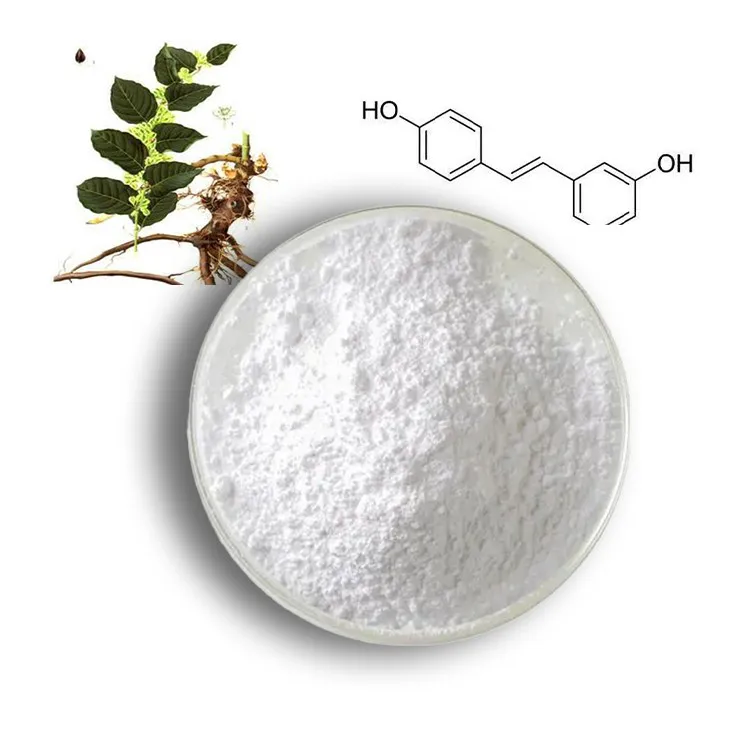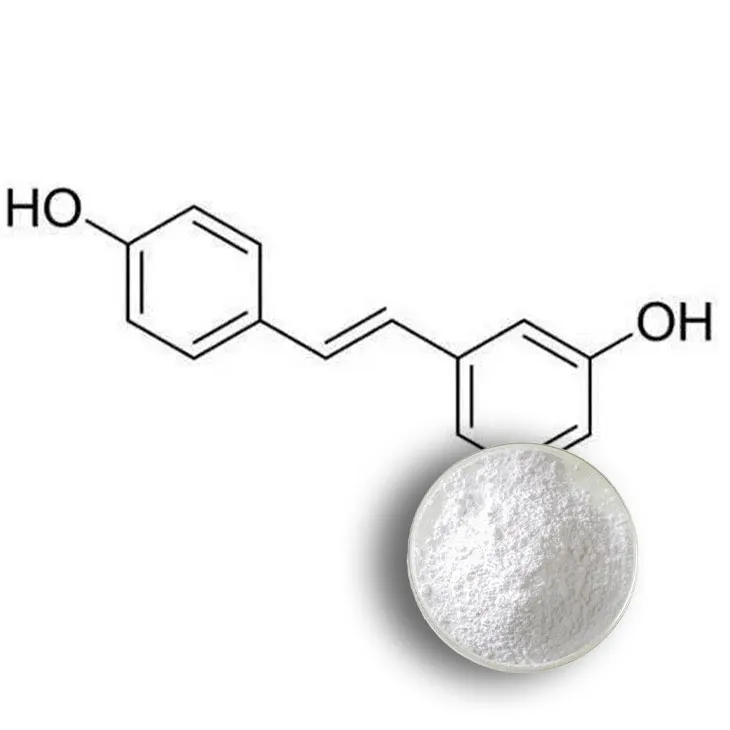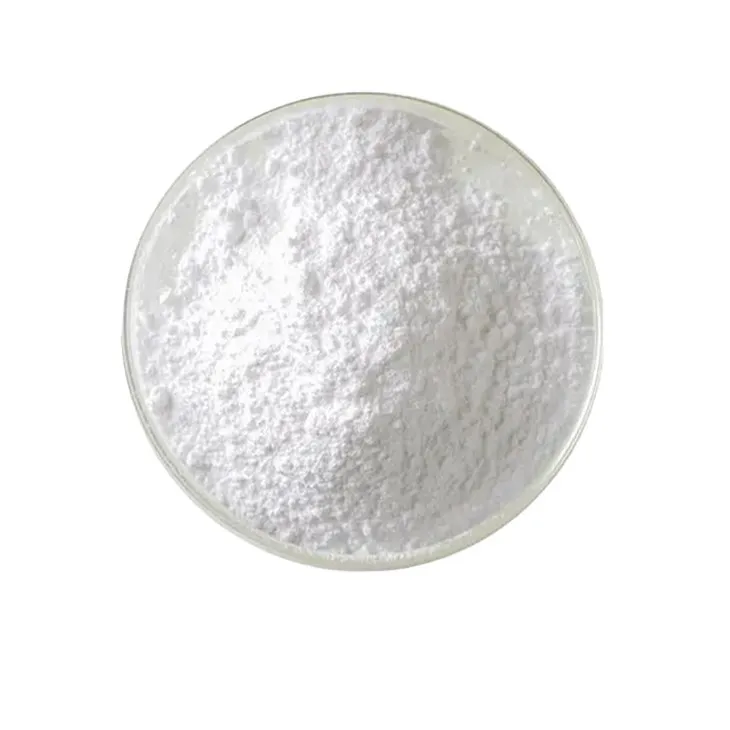- 0086-571-85302990
- sales@greenskybio.com
Application of Resveratrol Extract in Skin Care.
2024-11-12

1. Introduction to Resveratrol
Resveratrol is a natural compound that has been receiving increasing attention in the field of skin care. It is a type of phytoalexin, which is produced by plants as a defense mechanism against various stressors such as pathogens and environmental factors. Resveratrol can be found in several sources, with grapes and red wine being some of the well - known ones. The presence of resveratrol in these sources has led to numerous studies exploring its potential benefits for human health, especially in relation to skin care.

2. Resveratrol and Skin Defense Mechanism
2.1. Oxidative Stress and Skin Damage
One of the primary threats to skin health is oxidative stress. Reactive oxygen species (ROS), which include free radicals such as superoxide anions, hydroxyl radicals, and hydrogen peroxide, are constantly generated in the skin. These ROS can be produced as a result of normal metabolic processes, but their levels can increase due to environmental factors such as ultraviolet (UV) radiation, pollution, and smoking. Oxidative stress caused by excessive ROS can damage various components of skin cells, including lipids, proteins, and DNA. This damage can lead to premature aging of the skin, manifested as wrinkles, fine lines, and a loss of elasticity.
2.2. Resveratrol's Antioxidant Activity
Resveratrol extract has been shown to be a powerful antioxidant. It can scavenge ROS effectively, thus protecting the skin cells from oxidative damage. Resveratrol has the ability to donate electrons to neutralize free radicals without becoming highly reactive itself. By doing so, it helps to maintain the balance of redox reactions in the skin. In addition, resveratrol can also upregulate the expression of antioxidant enzymes in the skin, such as superoxide dismutase (SOD) and catalase. These enzymes play important roles in the body's natural antioxidant defense system, further enhancing the skin's ability to resist oxidative stress.

3. Resveratrol and Skin Repair
3.1. Role in Damaged Skin
When the skin is damaged, either by external factors such as wounds or burns, or internal factors like inflammation, the repair process is crucial for restoring skin health. Resveratrol extract can play an important role in this repair process. It has been shown to have anti - inflammatory properties, which can help to reduce the redness, swelling, and pain associated with damaged skin. By modulating the inflammatory response, resveratrol can create a more favorable environment for skin cells to repair and regenerate.
3.2. Promotion of Cell Proliferation
Resveratrol can also stimulate the proliferation of skin cells. This is important for the replacement of damaged or dead cells in the skin. In particular, it has been found to promote the growth of keratinocytes, which are the main cells in the outermost layer of the skin (the epidermis). By promoting keratinocyte proliferation, resveratrol can help to speed up the healing process of the skin, making it look healthier and more intact.

4. Resveratrol and Collagen Synthesis
4.1. Importance of Collagen for Skin
Collagen is the most abundant protein in the skin, accounting for about 75% of the skin's dry weight. It provides structural support to the skin, giving it strength and elasticity. As we age, the production of collagen in the skin gradually decreases, leading to a loss of skin firmness and the formation of wrinkles. Maintaining or increasing collagen levels in the skin is therefore a key aspect of skin care.
4.2. Resveratrol's Stimulation of Collagen Synthesis
Resveratrol extract has been studied for its ability to stimulate collagen synthesis. It can act on fibroblasts, which are the cells responsible for producing collagen in the skin. By activating certain signaling pathways in fibroblasts, resveratrol can increase the expression of genes related to collagen production. This leads to an increase in the synthesis of collagen, which in turn can improve the firmness and elasticity of the skin. For example, in vitro studies have shown that resveratrol can significantly enhance collagen production in cultured fibroblasts.

5. Resveratrol and Skin Microbiota
5.1. Skin Microbiota and Skin Health
The skin is home to a diverse community of microorganisms, known as the skin microbiota. These microorganisms play an important role in maintaining skin health. They can help to protect the skin from pathogenic bacteria by competing for nutrients and space. A balanced skin microbiota is associated with healthy - looking skin, while an imbalance can lead to various skin problems such as acne, eczema, and dermatitis.
5.2. Resveratrol's Inhibitory Effect on Skin Bacteria
Resveratrol extract has a certain inhibitory effect on bacteria on the skin surface. It can act against both gram - positive and gram - negative bacteria. However, it is important to note that resveratrol does not completely eliminate all bacteria on the skin but rather helps to maintain a balanced microbiota. By inhibiting the growth of certain pathogenic bacteria, resveratrol can contribute to reducing the risk of skin infections and maintaining clean and healthy skin.
6. Incorporation of Resveratrol in Skin Care Products
6.1. Types of Skin Care Products
Resveratrol extract can be incorporated into a wide range of skin care products. These include creams, lotions, serums, and masks. Creams and lotions are often used for general skin moisturization and protection, and the addition of resveratrol can enhance their antioxidant and anti - aging properties. Serums, which are typically more concentrated in active ingredients, can be formulated with resveratrol to target specific skin concerns such as wrinkles and loss of elasticity. Masks containing resveratrol can provide intensive treatment to the skin, delivering a high dose of resveratrol for a short period of time to improve skin condition.
6.2. Considerations for Product Formulation
When formulating skin care products with resveratrol, several factors need to be considered. One important factor is the stability of resveratrol. Resveratrol can be sensitive to factors such as light, heat, and oxygen, which can cause it to degrade. Therefore, appropriate measures need to be taken to protect resveratrol during product formulation and storage. This may include using antioxidants in combination with resveratrol, packaging the product in light - resistant and air - tight containers, and storing the product at appropriate temperatures. Another consideration is the solubility of resveratrol. Resveratrol has relatively low solubility in water, so formulators may need to use appropriate solvents or emulsifiers to ensure its proper dispersion in the product.
7. Clinical Studies and Evidence
7.1. In - vivo Studies
Several in - vivo studies have been conducted to evaluate the effectiveness of resveratrol in skin care. In one study, participants applied a resveratrol - containing cream to their skin for a certain period of time. The results showed that the skin's antioxidant capacity was significantly increased, and there was a reduction in the appearance of wrinkles. Another study focused on the anti - inflammatory effects of resveratrol in vivo. The study found that resveratrol - treated skin showed less redness and swelling in response to an inflammatory stimulus compared to untreated skin.
7.2. Comparison with Other Skin Care Ingredients
Resveratrol has also been compared with other common skin care ingredients. For example, when compared with vitamin C, which is another well - known antioxidant in skin care, resveratrol was found to have different mechanisms of action. While vitamin C mainly acts as an antioxidant by donating electrons, resveratrol can also modulate various cellular processes in the skin. In some cases, a combination of resveratrol and vitamin C in skin care products may provide more comprehensive protection and benefits for the skin.
8. Conclusion
In conclusion, resveratrol extract has great potential in skin care. Its antioxidant, anti - inflammatory, collagen - promoting, and antibacterial properties make it a valuable ingredient for maintaining healthy skin. With the increasing demand for natural and effective skin care products, resveratrol is likely to continue to gain popularity in the skin care industry. However, further research is still needed to fully understand its mechanisms of action and to optimize its use in skin care products. For example, more studies are required to determine the most effective concentrations of resveratrol in different skin care formulations and to explore its long - term effects on skin health. Overall, resveratrol holds promise as a key ingredient in the future of skin care.
FAQ:
Q1: How does resveratrol extract enhance the skin's defense mechanism?
Resveratrol extract enhances the skin's defense mechanism by effectively scavenging reactive oxygen species (ROS). ROS can cause oxidative damage to skin cells, and by removing them, resveratrol helps protect the skin cells, thus enhancing the overall defense mechanism of the skin.
Q2: What role does resveratrol extract play in keeping the skin looking youthful?
Resveratrol extract keeps the skin looking youthful by scavenging reactive oxygen species (ROS) and protecting skin cells from oxidative damage. Oxidative damage can lead to premature aging of the skin, so by preventing this, resveratrol helps maintain a youthful appearance.
Q3: How does resveratrol extract contribute to the repair of damaged skin?
Resveratrol extract contributes to the repair of damaged skin by scavenging reactive oxygen species (ROS). ROS can damage skin cells, and by removing them, resveratrol creates a more favorable environment for the skin to repair itself.
Q4: Why is collagen important for the skin and how does resveratrol extract affect it?
Collagen is essential for skin elasticity. Resveratrol extract affects collagen by stimulating its synthesis. By promoting the production of collagen, resveratrol extract can improve the firmness of the skin.
Q5: How does resveratrol extract maintain clean and healthy skin?
Resveratrol extract has a certain inhibitory effect on bacteria on the skin surface. By reducing the number of bacteria, it is beneficial for maintaining clean and healthy skin.
Related literature
- Resveratrol and Skin Health: A Comprehensive Review"
- "The Role of Resveratrol in Skin Care: From Anti - Aging to Anti - Inflammatory Effects"
- "Resveratrol in Cosmetics: Properties and Applications for Skin Care"
- ▶ Hesperidin
- ▶ Citrus Bioflavonoids
- ▶ Plant Extract
- ▶ lycopene
- ▶ Diosmin
- ▶ Grape seed extract
- ▶ Sea buckthorn Juice Powder
- ▶ Fruit Juice Powder
- ▶ Hops Extract
- ▶ Artichoke Extract
- ▶ Mushroom extract
- ▶ Astaxanthin
- ▶ Green Tea Extract
- ▶ Curcumin
- ▶ Horse Chestnut Extract
- ▶ Other Product
- ▶ Boswellia Serrata Extract
- ▶ Resveratrol
- ▶ Marigold Extract
- ▶ Grape Leaf Extract
- ▶ New Product
- ▶ Aminolevulinic acid
- ▶ Cranberry Extract
- ▶ Red Yeast Rice
- ▶ Red Wine Extract
-
Mango flavored powder
2024-11-12
-
Elderberry Extract
2024-11-12
-
Honeysuckle Pollen
2024-11-12
-
Lycopene
2024-11-12
-
Alfalfa Meal
2024-11-12
-
Cassia Seed Extract
2024-11-12
-
Uridine-5'-monophosphate Disodium salt
2024-11-12
-
Green Tea Extract
2024-11-12
-
Aguaje Extract
2024-11-12
-
Maitake Mushroom Extract
2024-11-12





















